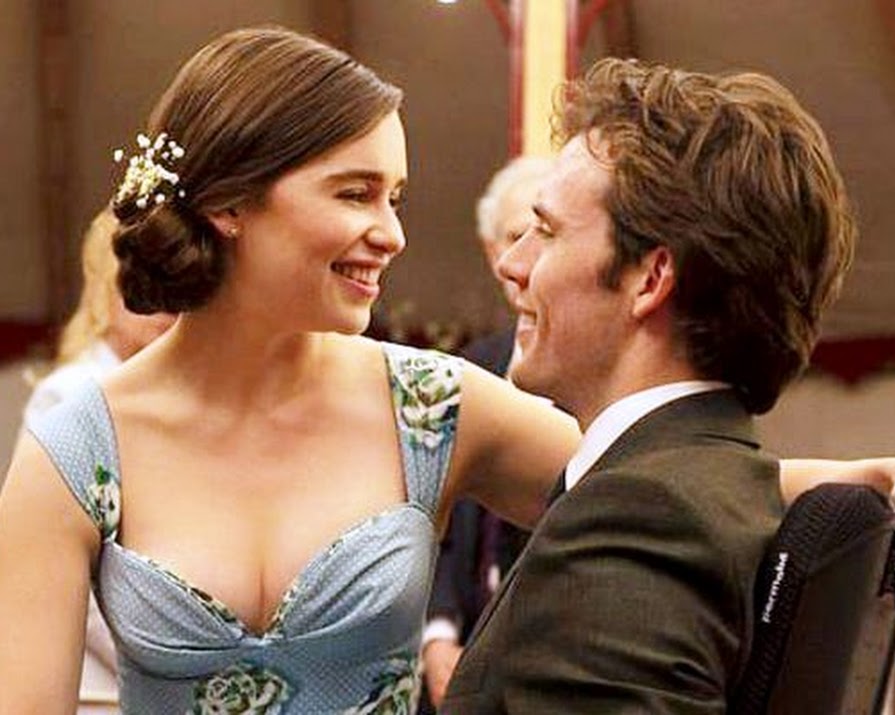
By Jennifer McShane
05th Jun 2016
05th Jun 2016
To those who have not yet seen the film or read the book, spoilers are below…
It would be fair to say that Jojo Moyes’ career-defining moment came when she wrote Me Before You.?Released in 2012, it was met with rave reviews and to date, has sold six million copies. With the release of its film adaptation (of which the author wrote the screenplay) – see our review here – comes similar fanfare, but likely not the way Moyes anticipated as it has been greeted with strong, impassioned backlash from disability groups, particularly?in the UK.
Its subject matter was always going to create controversy; Me Before You tells the story of a wealthy city boy named Will Traynor (played by Sam Claflin), who becomes quadriplegic after being hit by a motorbike whilst crossing the road. The book and film follow?his life after the accident and the complex relationship with his carer, Louisa Clarke?(played by Game of Thrones‘ Emilia Clarke). Romance blossoms between the pair yet, despite all this Traynor ultimately commits?assisted suicide as he is unable to cope with living his new life as?a disabled person.
ICYMI: Review: Me Before You
There was a protest on the film’s red carpet premiere this week as campaigners criticised?the plot for its negative portrayal of those with disabilities, claiming that it endorsed assisted suicide as a justified means and response to anyone faced with such an injury. ?It’s also been called ableist, suggesting it favours able-bodied people and condones the fact that those with a disability would be better off not living and much to-do has been made over the fact that Claflin, a fully able-bodied actor is telling the story of a quadriplegic man.
Moyes responded to the story, telling Stylist in a video interview, she was initially “surprised” at the protest, given that it was the first she’d ever heard of people taking that message from it in the four and a half years since the book was released. ?For those that don’t know, the story came from a combination of Moyes’ personal experience and a real-life story of a man who did as Traynor’does in the film.
She says that at no given time does any character’support what Traynor decides to do but that it is the journey of one man and one representation of disability; it isn’t intended to send out such a negative message, rather tell one person’s story.
?The fact is, in the film as in the book, nobody else agrees with what he decides to do. This is not by any means sending out a message. It’s just about one character – it’s nothing more than that.?
Watch the full, interview below:
As someone with mild Cerebral Palsy (CP), I’ve watched the coverage with interest and been asked my thoughts on the portrayal?of disability, and I’ve found myself struggling to accumulate my thoughts. I can see both sides of the argument. On the one hand, though I fall into the disability group, I feel it isn’t that black and white; I’m partially disabled, yes, but I have fairly good mobility and almost total independence so my situation is unique to me and unlike the struggle of Traynor or indeed anyone in his situation. I’ve always had my CP, and thus, my life has always been with its challenges; to be thrust into a similar situation via an accident is different entirely and the leap and adjustment one has to make is significant – I can’t imagine how tough it would be. And though I’d never condone Traynor’s decision – I find it shocking and heartbreaking beyond words – ?I’m reading the story as a portrayal of one man’s life situation, but I don’t feel it’s reflective of life as a person with a disability as a whole – or that it’s trying to be or tell me that my life is any less because I have a disability but then, each person will view it with a different set of eyes.
ICYMI: Walk, Don’t Run
On the other hand, I see the reason for the upset. Such a mainstream film had the opportunity to make a mark in a more positive way and perhaps end the stereotypes portrayed in similar movies such as The Sea Inside (though again, this was a personal story), and it did none of this. And considering the movies’s end, Traynor’s disability is largely portrayed as a negative (you get a deeper, more emphatic view in the book, which is beautifully written), the day-to-day of his condition of glossed over as is the norm in Hollywood films. It’s easy to see why quite a few feel its message isn’t really one of positivity, and as has been said, it doesn’t do anything to break barriers, which is frustrating. But this isn’t a problem in this film alone; despite the handful of films that have told the story of a disabled person’s journey (and often in a positive manner) – My Left Foot and The Theory of Everything – I feel I’ll never see a film that will truly grasp how my situation is because it is so unique to me, but it would be nice to see the mould being broken beyond Hollywood standards at the very least.
What do you make of the film and its portrayal of disability?























